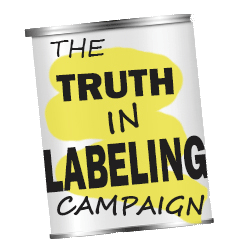A tip sheet to help fight back when you encounter the glutes’ ‘mishmash’ of altered facts
Effective propaganda doesn’t just hit once and disappear. It works best as a steady stream, most effectively coming at you from all directions. It puts a grain of sand in your oyster of belief, slowly eroding what you thought to be true.
One of the best propaganda campaigns currently out there is being hosted by Ajinomoto, the world’s largest manufacturer of monosodium glutamate. We’ve seen videos, blogs and “news” stories touting the safety of MSG. We’ve been told that avoiding this brain-damaging additive is somehow “racist.” We’ve been informed that it all started with a 1968 letter sent to the New England Journal of Medicine, and that any idea that this toxic substance is dangerous has been debunked by decades of scientific testing. All this disinformation being orchestrated by those in the glutamate industry who don’t mind spending multi-millions to keep generating their ill-gotten billions.
For that reason, we have prepared the following tip sheet for you. Since most of what is circulating is amazingly similar, you can use it for practically any glute hype that comes your way – and that includes articles in newspapers and magazines, Youtube videos and most especially talks on MSG by celebrity chefs and famous foodies.
Tip sheet to cut through the toxic fog of glutamate fiction
Fiction: MSG is made from corn, wheat, and beets
Truth: Since 1957 monosodium glutamate has been manufactured by using genetically modified bacteria to synthesize glutamic acid outside of their cell membranes and excrete it into a medium to accumulate. This “reinvention” has allowed for huge amounts of the additive to be made and used in previously unheard-of amounts in processed foods of all kinds.
Fiction: Avoiding MSG is somehow racist because of the term “Chinese Restaurant Syndrome”
Truth: As you likely know, Chinese Restaurant Syndrome was the title given to a letter written by a physician and sent to the New England Journal of Medicine seeking information about reactions suffered after eating in a Chinese restaurant in the U.S. Why would avoiding this additive – generally done because of personal experiences such as migraines, asthma, depression, heart-rhythm abnormalities, pain, and even seizures – smack of racism?
Fiction: MSG is known to be perfectly safe – “nobody has come up with any science that says there is a problem with it.”
Truth: The studies cited by the Glutes as evidence of MSG safety are ones in which MSG was fed to volunteers who were given test material containing MSG at one time, and at another time given a placebo that contained (without disclosure) an excitotoxic amino acid — one that would trigger the exact same reactions as those caused by MSG. When subjects reacted to both test material and placebo, researchers claimed to have again failed to demonstrate MSG toxicity. More on this subject can be found here.
Ever vigilant in promoting its views, the glutamate industry has declared that both the FDA and regulators around the world have found monosodium glutamate to be safe. In fact, however, neither independent scientists nor independent regulators have found monosodium glutamate to be safe. FDA studies, which were actually reviews, always have been staffed by persons with ties to the glutamate industry. The regulators and/or authoritative bodies referred to by the glutamate industry did no research of their own. And studies to be reviewed were delivered by industry agents. Studies of MSG-induced brain damage were never shown to these authoritative bodies. It’s known that MSG when fed to very young laboratory animals kills brain cells in the area of the hypothalamus, and, through that damage, causes a number of endocrine disorders. One of those disorders is gross obesity. Another is infertility.
Fiction: The glutamate that naturally occurs in many foods and the glutamate in monosodium glutamate are exactly the same
Truth: The glutamate found in unprocessed, unadulterated and unfermented protein is L-glutamate only. The MSG used in cosmetics, drugs, vaccines, dietary supplements and processed food is manufactured, and always contains L-glutamate plus D-glutamate and pyroglutamate (unwanted byproducts of L-glutamate production) plus other unwanted by-products of production all called impurities. And since industry has not found a way to remove the unwanted impurities from processed free L-glutamate, the glutamate in MSG will always come with impurities.
Only manufactured glutamic acid causes brain damage and adverse reaction when ingested or otherwise used. Glutamate contained in unprocessed, unadulterated and unfermented protein, no matter in what quantities, will not cause reactions in MSG-sensitive people.





